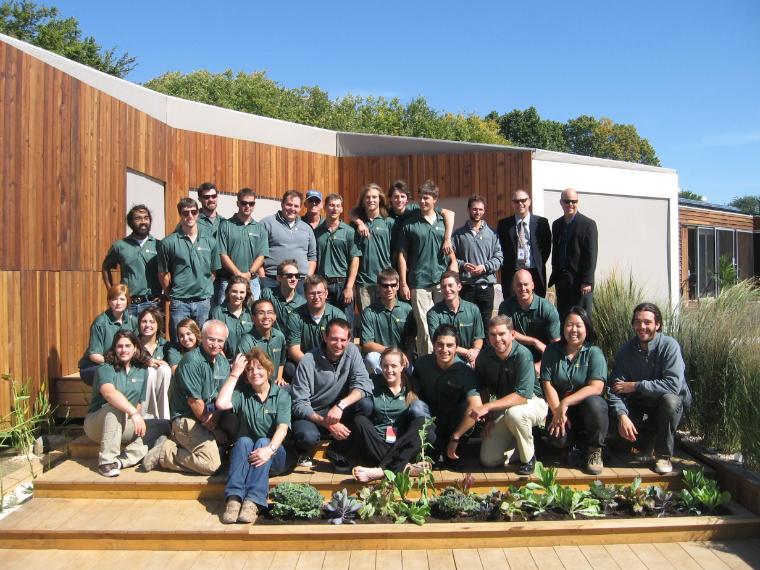Santa Clara University provides solutions-focused applied learning experiences that address sustainability challenges. Applied learning or living laboratory projects and programs are a powerful way for students to learn about sustainability and an important driver for advancing sustainability on campus and beyond.
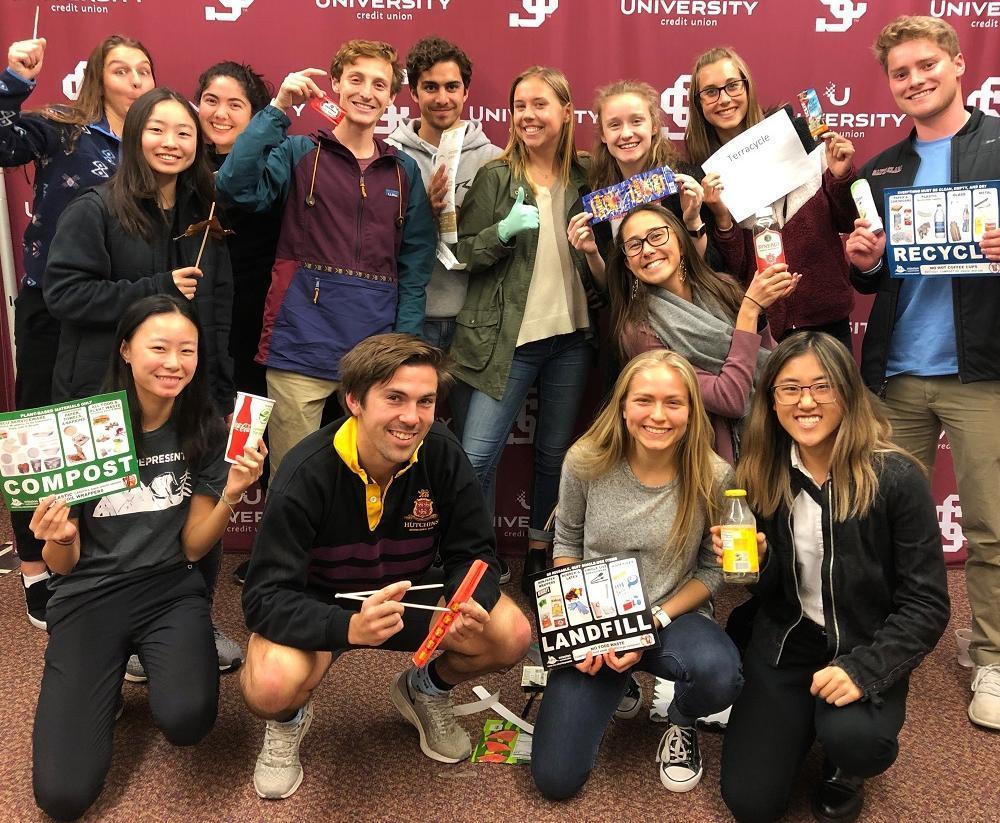
Students enrolled in ENVS 195—Sustainable SCU: Research to Action use the campus as a lab for sustainability solutions.
Focus: Collaborative research projects, working with campus partners to solve sustainability-related challenges.
Duration: One quarter (offered every Winter)
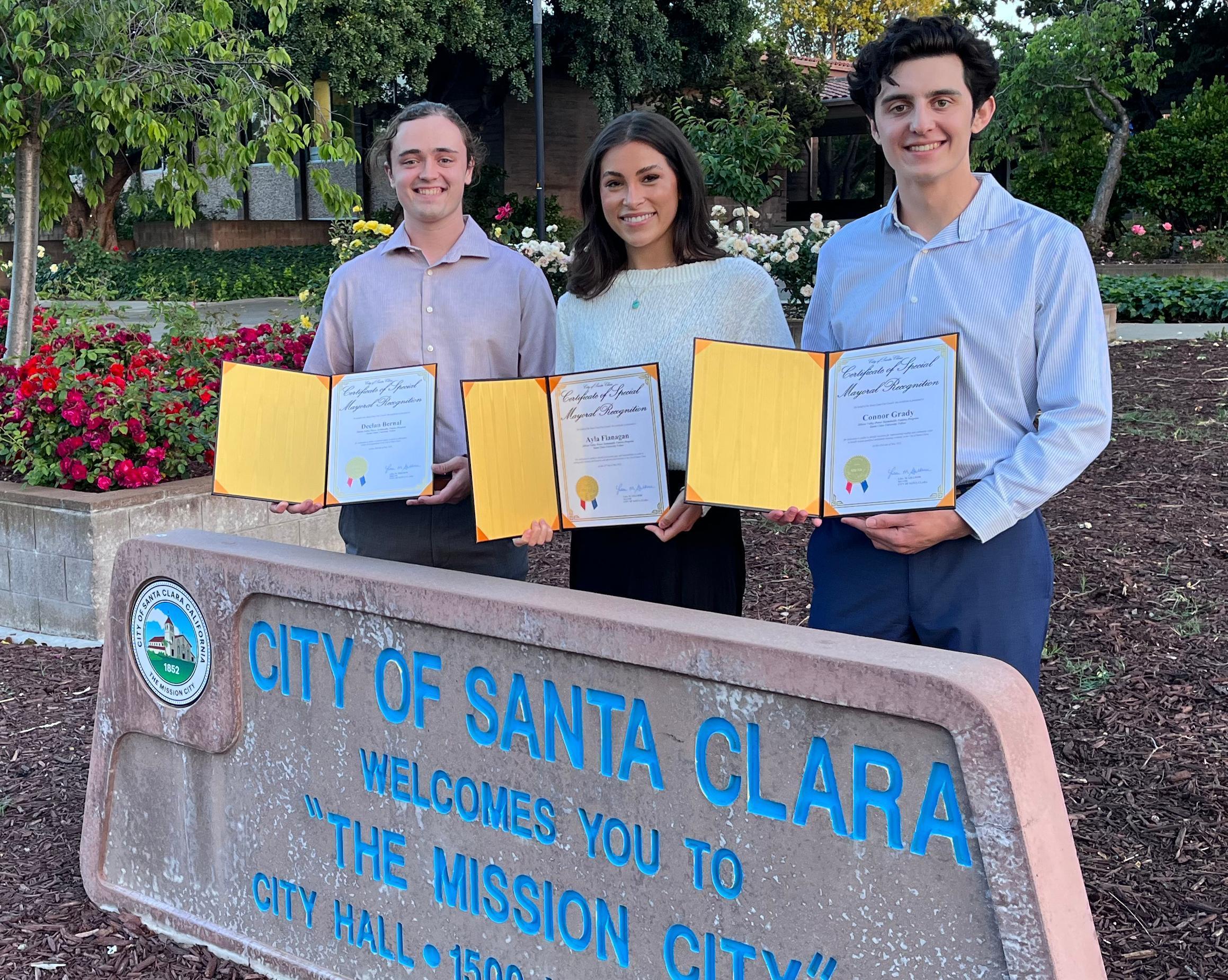
The SVP Sustainable Futures Fellowship is made possible through a partnership with the City of Santa Clara and Silicon Valley Power.
Focus: Application and scaling of climate solutions using the SCU campus and the City of Santa Clara as living labs.
Duration: One academic year (Fall-Spring)
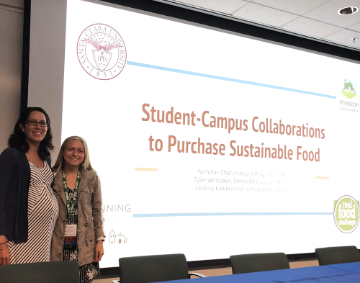
The donor-funded Sustainable Food Systems Fellowship allows students to research SCU’s food operations to identify areas for growth.
Focus: Analysis of SCU’s food procurement practices and developing recommendations.
Duration: Two quarters (Winter-Spring)
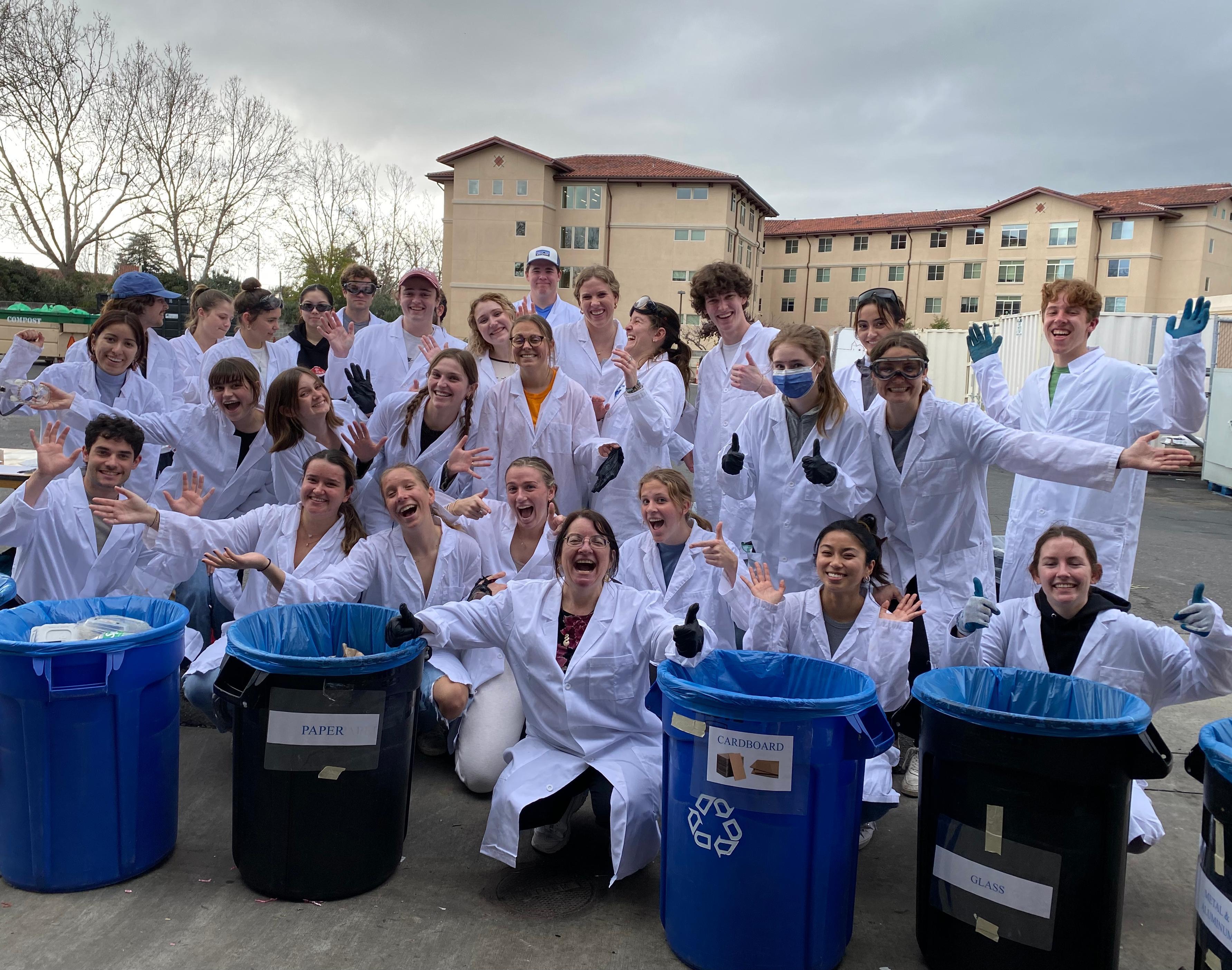
Advocate for waste diversion and reduction of single-use materials.
Focus: Waste Characterizations help SCU gain insights into the methods and materials in our trash disposal and monitor campus progress toward zero-waste goals.
Duration: 2 hours offered quarterly.
Help monitor tree vitality while practicing using arborist tools.
Focus: This service learning project highlights the importance of our urban forest in combating climate change and contributes to SCU's annual recognition as a Tree Campus Higher Education institution.
Duration: 1 hour offered quarterly.

This program went on hiatus due to the COVID-19 pandemic but we hope to re-energize it soon in partnership with Dining Services.
Focus: Collect and analyze data on food waste and contribute to educational outreach to reduce waste.
- Other sustainability-related applied learning opportunities at SCU
Engineering student teams take on year-long capstone projects that test their problem-solving skills by designing and developing prototypes for real-world challenges.
Environmental Studies and Sciences (ESS) seniors participate in a two-quarter Capstone project-based learning class that collaborates with community partners. This required upper-division class is a culminating experience for majors. The fall quarter class focuses on internship and professional development, including a reflection and analysis of experiences and organizations, documentation of learning, and forward-looking vocational discernment. Students then prepare for their winter quarter capstone experiences by identifying appropriate methods, creating a proposal of work to be done during the winter quarter, and submitting projects for human subjects' approval. During the winter quarter, the capstone class asks students to work on transdisciplinary teams as consultants to address a wide range of environmental issues, to provide research of value to a community partner or agency. Topics may include ecology, water resources, sustainable planning, waste management, food, water, and climate justice. Students develop skills in project management, research, collaboration, and communication with diverse audiences. Teams present their research findings at a professional poster session for ESS faculty and community stakeholders and produce in-depth reports.
Immersion experiences, both local and global, are designed to help participants see the world with new eyes, recognize the unjust suffering in a context different from their own, practice solidarity with marginalized communities, and allow those experiences to inform their vocational discernment. In the words of Father Peter-Hans Kolvenbach, the Ignatian Center strives to empower immersion participants "to let the reality of this world into their lives, so they can learn to feel it, think about it critically, respond to its suffering, and engage it constructively."
Undergraduate and graduate students at Santa Clara University are invited to apply for Hackworth Fellowships to support research on applied ethics funded by an endowment from Michael and Joan Hackworth to the Markkula Center for Applied Ethics.
The Jean Donovan Summer Fellowship (JDF) is named in honor of Jean Donovan, an American woman who lived, worked, and died in solidarity with the impoverished and oppressed of El Salvador in the 1980s. This Fellowship is designed to support undergraduate students who desire to deepen their understanding of social justice issues through a summer community-based learning experience of 6 weeks or longer.
The Miller Center Lewis Family Fellowship is a fully-funded summer field experience along with two-quarters of classwork and academic research for Santa Clara University junior-level students. Learn and work with social enterprises that are on the front lines of poverty eradication and sustainable development.
